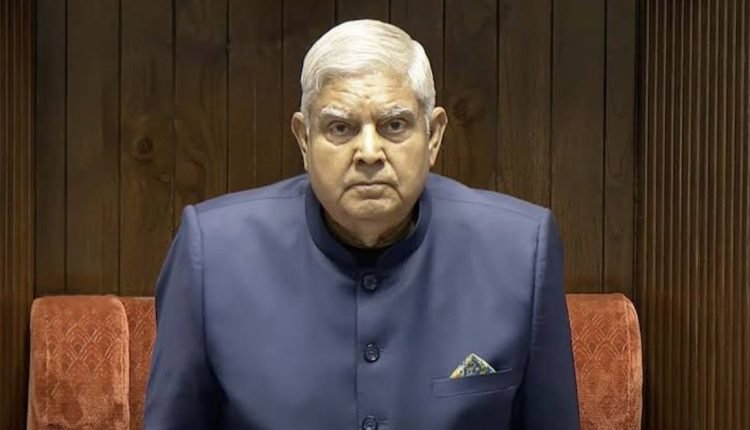Vice President Jagdeep Dhankhar Resigns Citing Health; Sparks Political Speculation and Institutional Transition
Historic Resignation on Opening Day of Monsoon Session
In a rare and unexpected move, Vice President Jagdeep Dhankhar resigned from his post on Monday evening, just hours after presiding over the inaugural sitting of the 2025 Monsoon Session of Parliament. Citing health reasons, Dhankhar vacated the second highest constitutional office in India, triggering widespread speculation and political debate.
The 74-year-old submitted his resignation to President Droupadi Murmu under Article 67(a) of the Constitution, which permits the Vice President to resign by writing to the President. In his letter, Dhankhar stated:
“To prioritise healthcare and follow medical advice, I hereby resign as the Vice-President of India with immediate effect.”
Only the Second Vice President to Resign Mid-Term
Dhankhar’s resignation marks just the second time in India’s history that a Vice President has stepped down before completing their term — the first being V.V. Giri in 1969, who resigned to contest the presidential election. Dhankhar had assumed office on 11 August 2022, and his exit comes two years before the end of his term.
As Vice President, Dhankhar also served as the Chairman of the Rajya Sabha, where he presided over legislative debates, maintained order, and ruled on procedural matters. His departure now leaves a critical constitutional vacancy at the heart of India’s parliamentary system.
Constitutional Process for Filling the Vacancy
According to amendments and provisions under the Constitution, the Deputy Chairman of the Rajya Sabha, Harivansh Narayan Singh, will act as the presiding officer until a new Vice President is elected. In his absence, a provisional member may be nominated to chair proceedings.
Article 68(2) of the Constitution mandates that the Election Commission of India must hold a Vice Presidential election “as soon as may be,” ideally within six months. The election will be conducted using a single transferable vote system by an electoral college comprising members of both the Lok Sabha and the Rajya Sabha.
Health Concerns and Political Undertones
While Dhankhar’s health has been under scrutiny — he suffered a heart attack in March 2025 and was hospitalized at AIIMS Delhi — the opposition believes that the resignation may not be purely medical.
Congress leader Jairam Ramesh hinted at deeper political reasons behind the sudden move. Former Chhattisgarh CM Bhupesh Baghel went further, calling the resignation “a sign of an internal political storm” and suggesting growing tensions within the ruling alliance.
Mixed Reactions Across Political Lines
The resignation has evoked mixed responses. Rajya Sabha MP Kapil Sibal called Dhankhar “a nationalist and a patriot,” expressing personal regret at his departure despite political differences. Meanwhile, social media platform X (formerly Twitter) has been buzzing with unverified theories, many pointing to possible political pressure or internal rifts during the Monsoon Session.
A Test of Constitutional Strength Amid Uncertainty
As the nation awaits official notification from the President’s Office confirming the resignation and announcing a fresh election, Dhankhar’s departure underscores both the strength and resilience of the Indian Constitution. While political uncertainties remain, the constitutional mechanism for a smooth transition is already in motion.
With Parliament in session and political temperatures running high, all eyes are now on the Election Commission and the ruling alliance’s next move in filling this high-stakes vacancy.



Comments are closed.